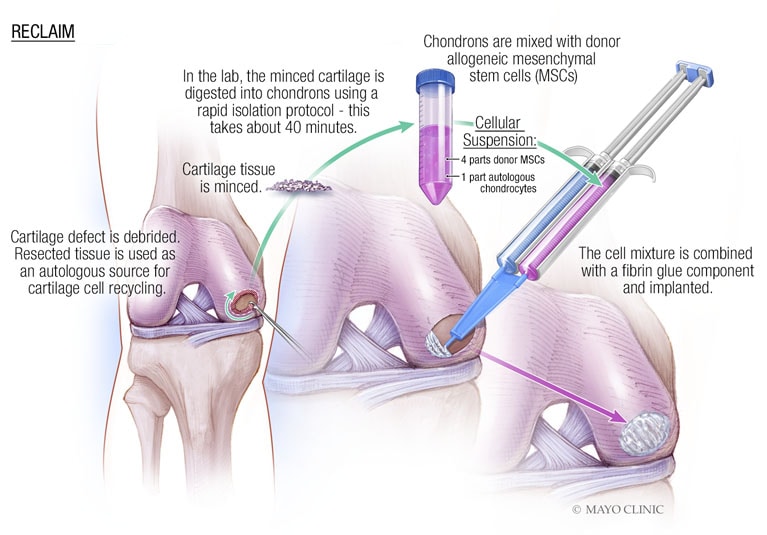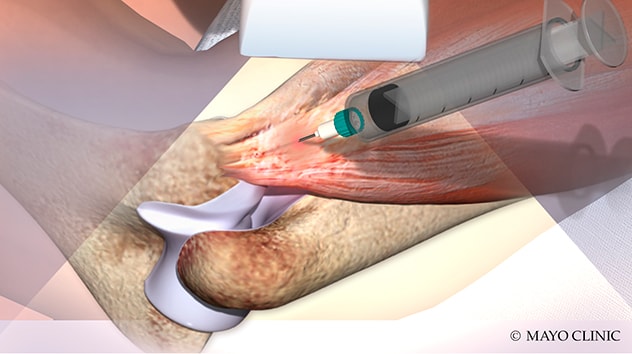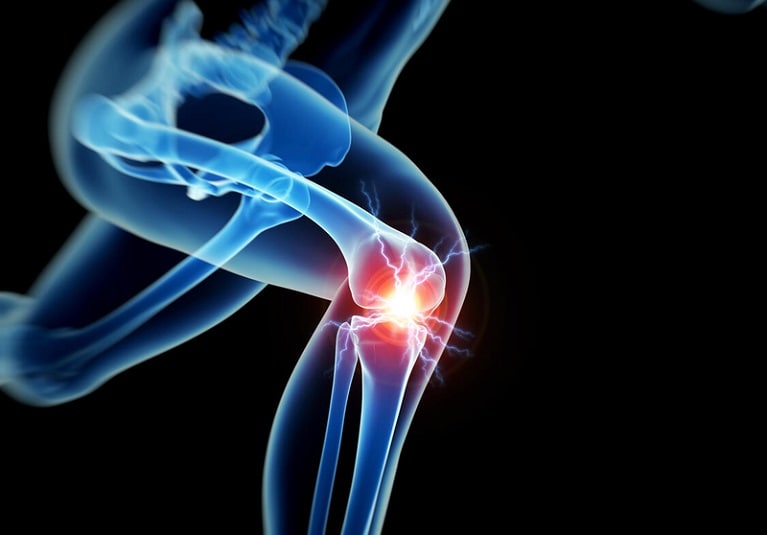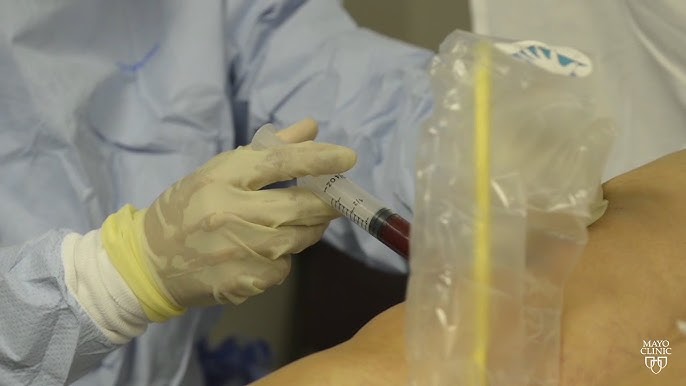Mayo Clinic is pushing the boundaries of modern medicine with its innovative use of stem cell therapy to tackle knee arthritis. Led by Shane Shapiro, an expert in orthopedic surgery, recent clinical trials have shown promising results in assessing the safety and effectiveness of this groundbreaking approach. By exploring the potential of using stem cells for pain relief and cartilage regeneration, the clinic is paving the way for future treatments aimed at significantly improving the quality of life for those suffering from osteoarthritis.
The exciting findings from these trials indicate that stem cells harvested from patients can be injected back into their knees on the same day, facilitating a rapid treatment process. As more extensive studies are planned, the goal remains clear: to not only alleviate pain but to ultimately regenerate cartilage and offer a durable solution for knee arthritis. With ongoing research and FDA oversight, Mayo Clinic is opening new avenues in regenerative medicine that could change the landscape of arthritis treatment for patients everywhere.

Introduction to Stem Cell Therapy
Stem cell therapy is an exciting and rapidly evolving field of medicine that holds tremendous potential for treating various conditions, including arthritis. Essentially, stem cells are unique cells in your body that possess the ability to develop into different types of cells, making them invaluable in regenerative medicine.
Definition and Functions of Stem Cells
Stem cells are undifferentiated cells that can divide to form specialized cells and have the unique ability to self-renew. They serve as the body’s repair system, providing a source for various cell types such as muscle, nerve, and cartilage cells. This quality makes them ideal for therapeutic applications, especially in the field of orthopedics, where they can potentially regenerate damaged tissues.
Types of Stem Cells Used in Therapy
In stem cell therapy, various types of stem cells can be utilized, including embryonic stem cells, adult stem cells, and induced pluripotent stem cells (iPSCs). Adult stem cells, particularly mesenchymal stem cells (MSCs), are the most commonly researched in orthopedic applications, as they can be harvested from your own body, such as from bone marrow or adipose (fat) tissue, minimizing the risk of rejection.
Current Research on Stem Cell Therapy
Current research on stem cell therapy is active and ongoing. Studies are exploring the efficacy of MSCs for a variety of conditions, including osteoarthritis and other degenerative joint diseases. Researchers are also investigating how to enhance the regenerative capabilities of these cells and improve treatment protocols, leading to better outcomes for patients like you.
Understanding Knee Arthritis
Osteoarthritis is one of the most common forms of arthritis, affecting millions of people around the world, including those in your community. Understanding its nature helps you recognize its symptoms and seek appropriate treatments.
Overview of Osteoarthritis
Osteoarthritis occurs when the cartilage that cushions your joints gradually wears away, leading to pain, stiffness, and reduced mobility. This degenerative condition typically affects weight-bearing joints such as the knees, hips, and spine, and can transcend age, genetics, and lifestyle factors.
Symptoms and Impact on Quality of Life
The symptoms of knee osteoarthritis can vary, but common ones include joint pain during movement, stiffness after periods of inactivity, swelling, and a decreased range of motion. Living with osteoarthritis can significantly impact your quality of life, making daily tasks challenging and affecting both physical and emotional well-being.
Traditional Treatment Options for Knee Arthritis
Typical treatments for knee arthritis often start with conservative measures such as physical therapy, pain relief medications, and lifestyle modifications like weight loss and exercise. In more advanced cases, physicians may recommend corticosteroid injections or surgical options like joint replacement. However, these treatments often only provide temporary relief without addressing the underlying tissue damage.
Mayo Clinic’s Role in Stem Cell Therapy Research
Mayo Clinic is at the forefront of research in stem cell therapy, particularly in its application for treating knee arthritis. Their commitment to advancing healthcare and pioneering medical innovations has made them a significant player in this burgeoning field.
Mayo Clinic’s Regenerative Medicine Division
The Mayo Clinic’s Regenerative Medicine Division is dedicated to understanding and harnessing the body’s natural healing processes. They focus on researching treatments that leverage stem cells to regenerate damaged tissues and improve patient outcomes, ensuring you receive cutting-edge medical care.
Leading Experts in the Field
With a team of world-renowned experts, including orthopedic surgeons and researchers, Mayo Clinic boasts impressive talent in the field of regenerative medicine. Their knowledge and experience contribute to breakthroughs that enhance your understanding and treatment of conditions like knee arthritis.
History of Clinical Trials at Mayo Clinic
Mayo Clinic has a proud history of conducting clinical trials to assess the safety and effectiveness of new treatments. Their rigorous approach to research ensures that any procedures developed undergo stringent testing, providing you confidence in the therapies available.
The Recent Clinical Trial
One of the landmark studies conducted at Mayo Clinic aimed at evaluating the efficacy of stem cells for knee arthritis has yielded promising results. This trial was particularly notable and has paved the way for future research in this exciting area.
Objectives of the Trial
The primary objective of the trial was to investigate whether stem cell injections could effectively alleviate knee pain associated with osteoarthritis. Moreover, it sought to ensure the safety and feasibility of this innovative treatment, providing a foundation for subsequent studies that may result in cartilage regeneration.
Methodology of the Study
Participants in the trial underwent a comprehensive evaluation to determine their eligibility. The study utilized a randomized, placebo-controlled design, ensuring that neither the participants nor the researchers knew who received the actual stem cell treatment and who received a placebo. This methodological rigor enhances the validity of the findings and reinforces confidence in the outcomes.
Role of FDA Monitoring
The involvement of the FDA in monitoring the trial underscored the significance of adhering to safety protocols. Regulatory oversight ensures that the study meets required ethical standards and that the treatment is safe for participants. This rigorous approach not only protects you as a patient but also enhances the credibility of the research results.

Findings from the Clinical Trial
The findings from the recent clinical trial at Mayo Clinic have provided crucial insights into the potential of stem cell therapy to treat knee osteoarthritis, offering hope for many individuals facing this condition.
Results of Stem Cell Injection
The trial revealed that stem cell injections resulted in a meaningful reduction in knee pain for many participants. This initial success is encouraging, indicating that stem cell therapy may serve as a viable option for managing symptoms associated with osteoarthritis.
Safety and Feasibility of the Procedure
In terms of safety, the study demonstrated that stem cell injections were generally well tolerated. Most participants experienced minimal side effects, validating the procedure’s feasibility. This is important for you to consider if you are exploring treatment options, as safety remains a paramount concern.
Patient Feedback and Pain Relief
Feedback from participants highlighted significant improvements in their quality of life following the treatment. Many reported enhanced mobility and a decrease in pain levels, reflecting the positive impact this therapy can have on your day-to-day activities.
Significance of the Findings
The outcomes of this clinical trial hold profound implications for the future of arthritis treatments. By successfully demonstrating the effectiveness of stem cell therapy, researchers have opened the door to a new era of orthopedic care.
Implications for Future Research
The results from this study pave the way for further exploration into the mechanisms behind stem cell efficacy. Future research may focus on optimizing treatment protocols and understanding how best to utilize stem cells for cartilage regeneration in knee arthritis.
Potential to Regrow Cartilage
The long-term goal of these studies is to investigate the potential of stem cells to not just relieve pain but also to regenerate cartilage that has been lost due to osteoarthritis. This represents a significant shift in how joint diseases may be treated, offering hope for a more permanent solution.
Innovations in Orthopedic Treatments
Continued advancements in stem cell therapy could revolutionize orthopedic treatment options. As our understanding of regenerative medicine grows, you may benefit from increasingly innovative therapies that prioritize healing and restoration over traditional pain management.

Challenges Ahead
Despite the promising findings of the recent trial, several challenges must be addressed as stem cell therapy evolves into a mainstream treatment option.
Limitations of Current Study
While the trial demonstrated encouraging results, it was limited by its relatively small sample size and short follow-up period. Larger studies with a more extended follow-up duration are necessary to confirm the findings and better understand the long-term effects of the treatment.
Potential Risks and Ethical Considerations
As with any medical intervention, potential risks associated with stem cell therapy must be carefully weighed against the anticipated benefits. Ethical considerations, such as the sourcing of stem cells and patient consent, also play a crucial role in the discourse surrounding these treatments.
Need for Further Research and Trials
As exciting as the findings are, it’s important to recognize that further research and clinical trials are essential. These studies will build on the current knowledge base, clarifying the most effective applications of stem cell therapy for various conditions, including knee arthritis.
Future Directions for Research
Looking forward, several opportunities exist to expand the research surrounding stem cell therapy, particularly in the context of knee arthritis.
Expanding Patient Involvement
Engaging more patients in clinical trials will provide a broader understanding of how diverse populations respond to stem cell therapies. This information is vital for developing personalized treatment options that cater to specific needs.
Long-Term Effects of Treatment
Long-term studies are necessary to assess the sustained effectiveness and safety of stem cell injections for knee arthritis. These studies will help determine how lasting the pain relief and cartilage regeneration effects can be, providing you with better insights into what to expect.
Exploring Other Joint Treatments
In addition to knee arthritis, researchers are exploring the application of stem cell therapy for other joint conditions, such as rheumatoid arthritis and injuries resulting from trauma. These advancements could significantly enhance the treatment landscape for musculoskeletal disorders.

Patient Perspectives
Hearing from patients who have undergone stem cell therapy can offer valuable insights into their experiences, expectations, and satisfaction with their treatment options.
Satisfaction with Treatment Options
Many patients express high satisfaction levels following stem cell treatments, appreciating the relatively quick procedures and the potential for significant pain relief. This positive feedback often motivates others to consider similar therapies for their conditions.
Expectations vs. Reality of Stem Cell Therapy
While many patients have high hopes for stem cell therapy, managing expectations is crucial. Some may experience more profound results than others, and understanding that not every case will result in complete pain relief or cartilage regrowth can help set realistic goals.
Personal Stories of Patients
Personal accounts from patients who have undergone stem cell treatment highlight a range of experiences, from substantial improvements in mobility to minor relief. These narratives help paint a full picture of the therapy’s impact and underline the importance of individualized care in achieving the best outcomes.
Conclusion
In summary, stem cell therapy represents a promising frontier in treating knee arthritis, offering hope for better management and potential regeneration of damaged tissues.
Summary of Key Insights
Key findings from Mayo Clinic’s recent clinical trial suggest that stem cell injections can reduce pain and are generally safe to administer. The potential for cartilage regeneration adds an exciting dimension to how we view treatment for osteoarthritis.
The Future of Knee Arthritis Treatments
As researchers continue to explore the possibilities offered by stem cell therapy, the landscape for treating knee arthritis is likely to undergo significant changes. Your options for managing this condition may expand in ways we can only begin to foresee.
The Role of Stem Cell Research in Medicine
Ultimately, ongoing research in stem cell therapy will play a crucial role in developing innovative treatments across various medical fields. By continuing to explore the potential applications of stem cells, medical professionals strive to enhance the quality of life for patients like you, paving the way for healing and hope.

Stem cells have the extraordinary ability to repair and regenerate damaged cells, making them a promising solution for many chronic conditions. However, traditional stem cell therapy is often out of reach due to high costs, the need for donors, or the requirement to travel abroad. Fortunately, a groundbreaking stem cell technology is now available, offering a more affordable and accessible way to experience these benefits.
This technology complements healthy lifestyle habits—like eating well, exercising, and reducing toxins—to enhance the body’s natural healing processes. It accelerates recovery, supports immune function, and combats inflammation by strengthening your cells. To learn how this innovative solution can benefit you, your loved ones, or those facing health challenges, contact me at stemboostx@gmail.com with the subject “AIWNBOX.”



